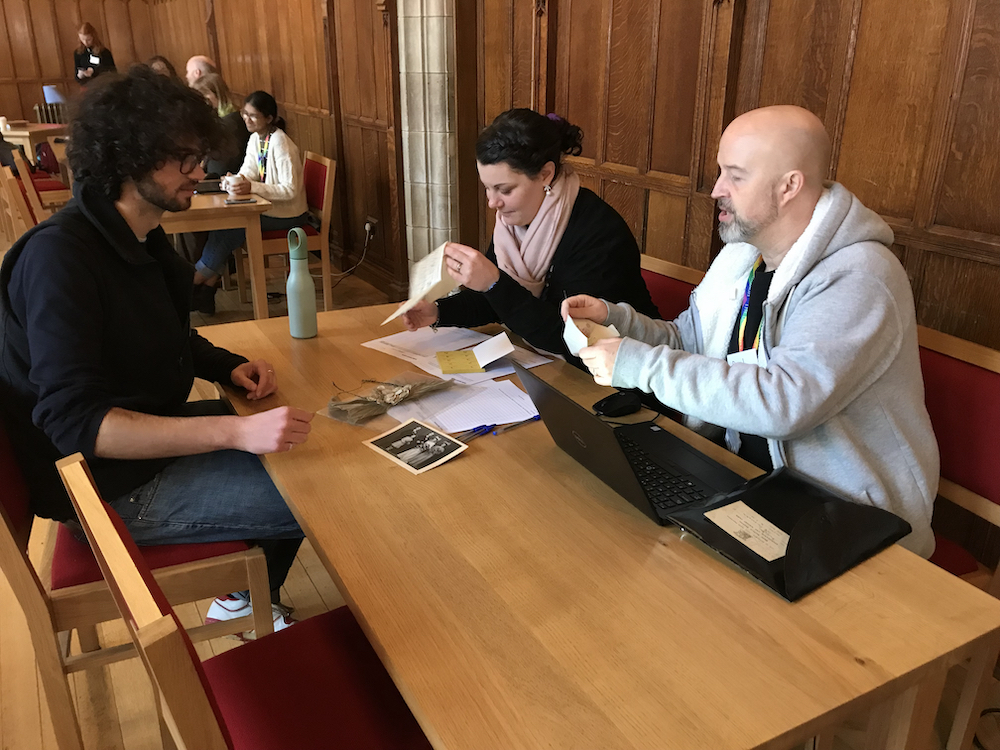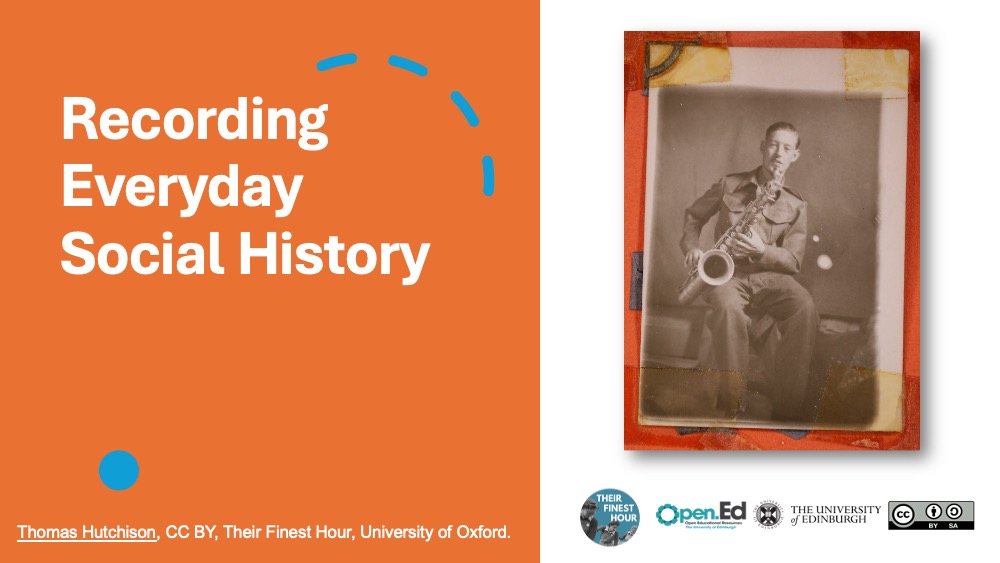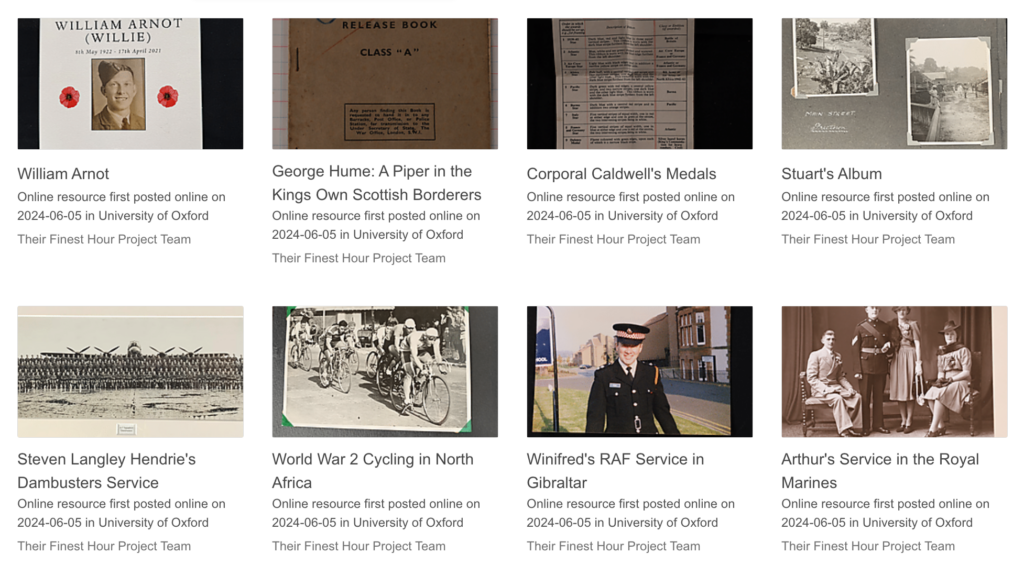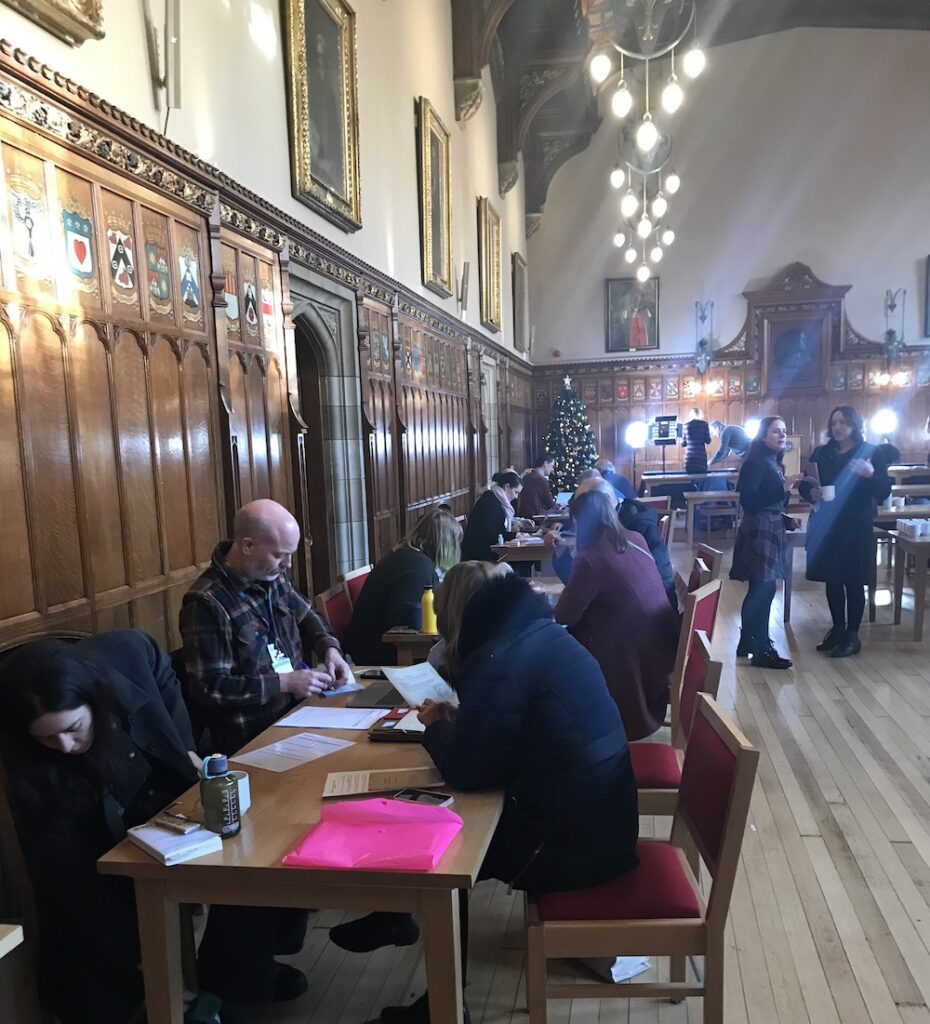Reflections on ‘Their Finest Hour’
In July 2023, I began working on Their Finest Hour, my internship, I was initially told, would last six months. Yet, I am now clocking off, one year later, after continuous exciting and rewarding work on the project.
The last year has involved a huge variety of challenges. Organising the collection day itself involved events management: coordinating with the venue and caterers, as well as being in touch with local history societies and other community hubs to promote the event, curating a small exhibition, and conducting a press interview. On the more technical side, organising the event involved liaising with volunteers as well as setting up camera equipment and interview stations.

Eden, Fiona and Paul at the Digital Collection Day. CC BY 4.0, Fiona Hendrie, University of Edinburgh.
In the aftermath of the event, I uploaded interview transcripts and photographs onto Their Finest Hour Archive. I also created an Open Educational Resource (OER), titled “Recording Everyday Social History“, that uses examples of some objects we photographed at the collection day. The OER includes lesson plans and classroom/homework exercises and is aimed at secondary school students.

Recording Everyday Social History, CC BY-SA 4.0, University of Edinburgh.
Undertaking the internship has allowed me to develop a wide range of skills. Among other things, I’ve learnt about archiving, managing press relations, volunteer coordination, organising events, and creating teaching resources. I’m so glad that my internship lasted longer than initially expected, as it meant that I was able to see the project through: from planning the collection day to archiving the photographs and interviews themselves.
Managing the internship alongside final year studies required careful time management and efficient working. Working on a practical, community-driven history project was both a refreshing break from my History degree, and also helped me to consider different historical perspectives and outlooks in my studies.
Two highlights from the last year stand out. Perhaps obviously, seeing the archive uploaded online and free-to-access gave me an incredible feeling that we have preserved a hugely important section of history. Voices that are often not heard as well as objects often not preserved have been recorded, providing a window into the life of the normal person – not the political or military decision makers – of the Second World War.

Stories collected at The University of Edinburgh Digital Collection Day uploaded to Their Finest Hour Archive
A second highlight of the last year was during the collection day itself. Observing how happy contributors were to share stories and bring in their own material remnants of the war showed me how the space that we created brought fulfillment to so many people. People who were happy to be heard, and for their stories to go down in history. It was a reminder of History’s human level. More than just recording events, it is crucial to consider experience. In prioritising testimony, we both gain a clearer view on the past and ‘collect history’ via meaningful human interaction that has the potential for such positive effects on the contributor.

Visitors and volunteers at the University of Edinburgh Digital Collection Day. CC BY 4.0, Fiona Hendrie, University of Edinburgh.
I’d like to thank my manager, Lorna Campbell, for taking me on this journey. I’ve learnt so many useful lessons over the last year and I am so proud of what we’ve achieved.
Here’s the link to the Edinburgh-specific Their Finest Hour archive:
https://portal.sds.ox.ac.uk/projects/University_of_Edinburgh_Edinburgh/206113




Recent comments